8. Benedetta (2021)
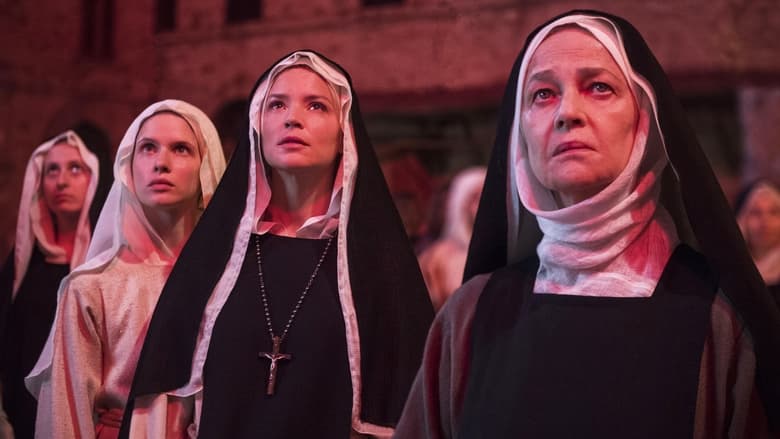
Unlike many filmmakers who simply fizzle out with age, Verhoeven’s late period has maintained a standard of quality – his output is less frequent now than in his heyday, naturally, but every single one of the director’s post-Hollywood films is great.
Take his latest, “Benedetta,” an outrageously fun drama that is vintage Verhoeven in every way: sardonic, erotic, vulgar, extremely violent, provocative without being juvenile or glib and, most of all, absolutely hilarious from beginning to end.
“Benedetta” is in many ways a spiritual sequel to “Flesh + Blood,” not only in it’s medieval setting but also in the skewering of traditional notions of morality, of heroes and villains. Verhoeven treats the story of a lesbian nun who’s also a charlatan saint the only way he knows how: as a farce, portraying every character as equally morally bankrupt, neither the Church and its acolytes nor those who defy them are more “right,” everyone is simply a power hungry hypocrite looking to survive.
And if in less assured hands such bleakly cynical material could become turgid, self-serious arthouse dreck, Verhoeven makes it a blast, finding the humor in the absurdity of human systems of control.
7. Elle (2016)
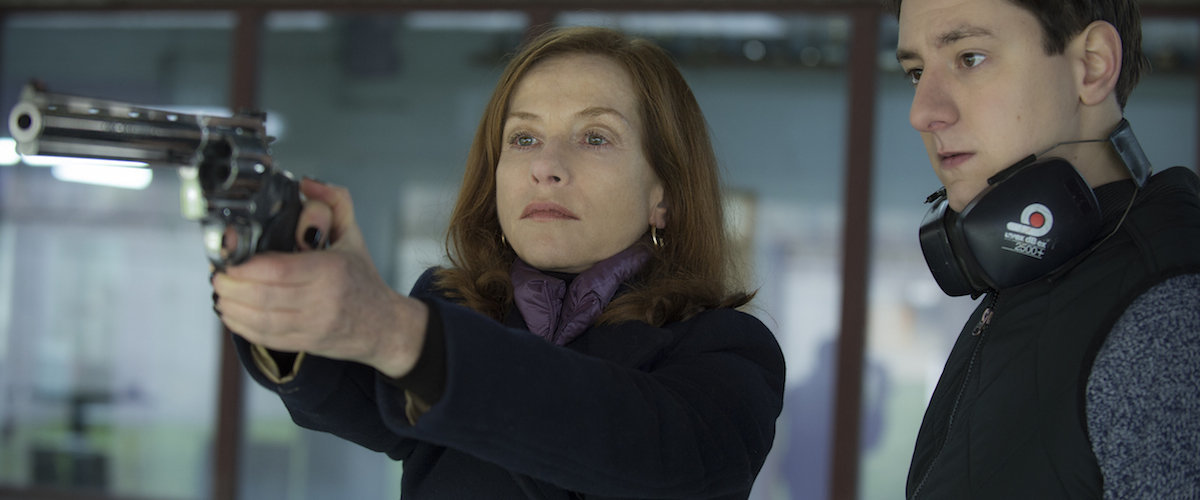
Every Verhoeven film is deeply irreverent; but not all of them are as explicitly comedic as, say, “Benedetta” or “Showgirls” – some conceal their playful nature beneath a sheen of conventional narrative.
“Elle,” in that sense, is Verhoeven’s most subtle movie – while simultaneously being also one of his most nakedly controversial. Stylistically it’s by far the director’s most muted film; with almost zero traces of his appreciation for scatological explicitness and vulgar, winking melodrama – in fact, it could potentially be seen as him giving in to standard ideas of arthouse good taste. That apparent tameness of tone, however, is a cover for one of Verhoeven’s most wryly satirical and psychologically insightful explorations of shame and taboo.
The central concept (that a female victim of rape finds herself aroused by the thought of sexual violence) is, needless to say, an extremely delicate theme; but one that Verhoeven treats with incredible nuance. Anchored by Isabelle Huppert’s hypnotic performance, “Elle” is a thoughtful examination of the way women have to navigate misogyny and take control of their own desire in the face of male sexual domination.
6. Black Book (2006)
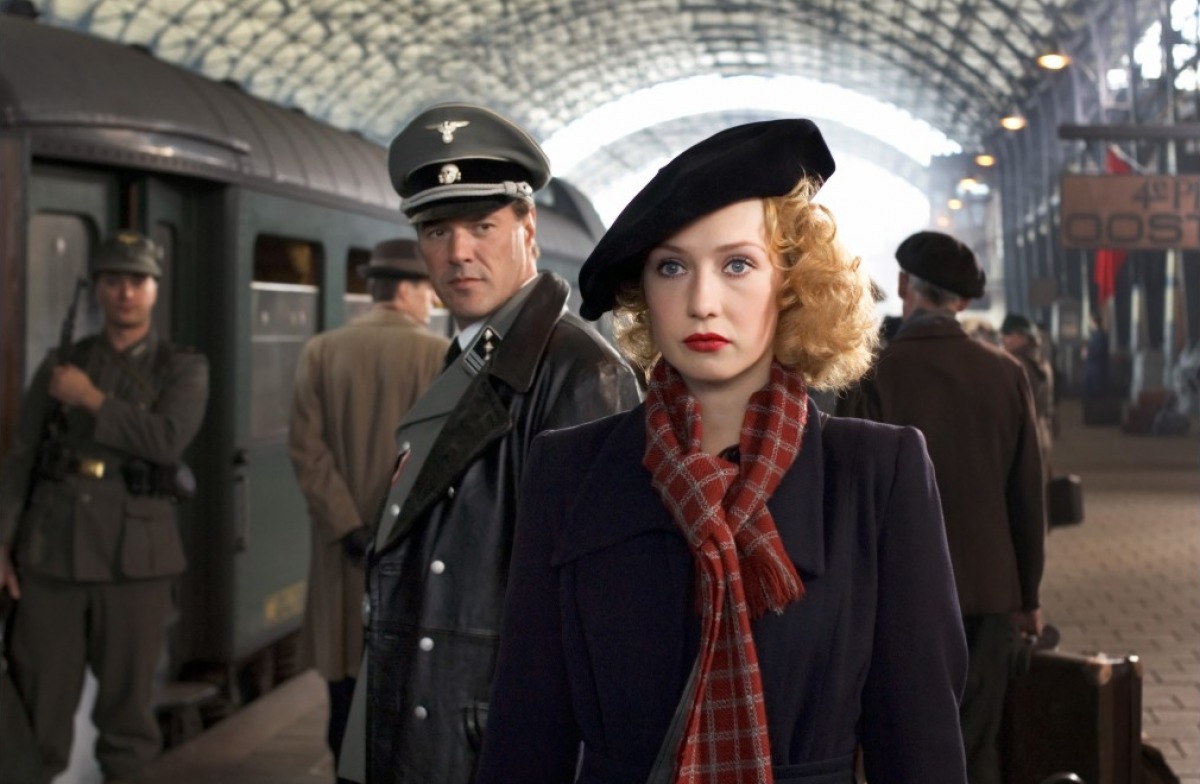
Following the disheartening experience of “Hollow Man,” which put him off of the Hollywood system for good, Verhoeven returned to the Netherlands for a back-to-basics genre exercise in the fantastic “Black Book.”
A spiritual sequel to “Soldier Of Orange,” the film is also a World War II drama following the exploits of the Dutch resistance against the Nazis, but whereas the earlier film aimed at pathos, seriousness and tragedy, “Black Book” is pure pulp, much more in line with Verhoeven’s established style. In this film, the director’s trademark sexual playfulness and violent set pieces feel more aligned with the piece as a whole (rather than an outlier in an otherwise standard war drama); which is gloriously melodramatic and ridiculously exciting in its tight, clockwork plotting.
Which is not to say that the film lacks any sort of thematic weight and complexity; since it retains Verhoeven’s career long ambivalence about heroes and his commitment to portraying moral greyness – not to mention the ambiguous, politically radical implications of the movie’s flashforward ending.
5. Basic Instinct (1992)
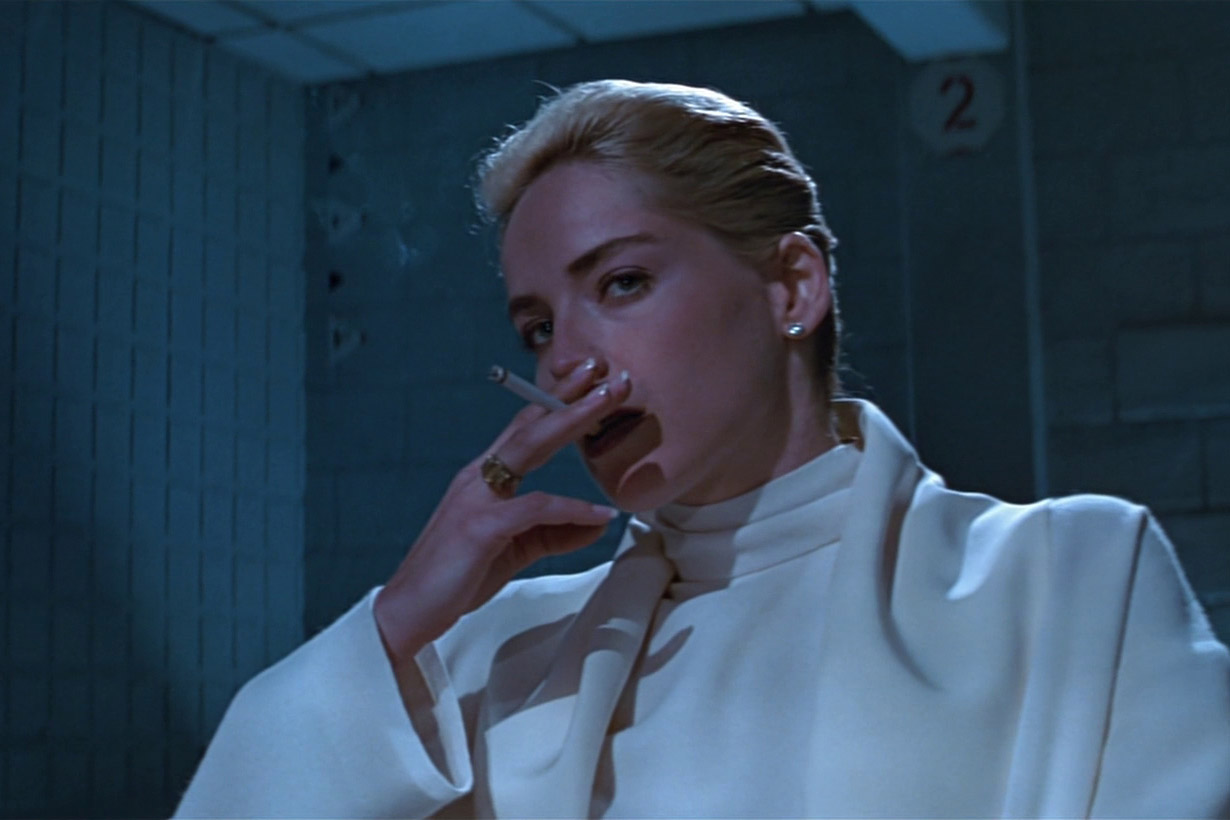
Hollywood and Verhoeven came to each other in the absolute perfect time – there’s no other era of American cinema in which his talents could’ve been put to better use than in the exact period when he was active in the States.
A decade before, the technology wouldn’t have been advanced enough to fully express the lavishness of his vision (thus robbing us of his groundbreaking special effects); and a decade later, mainstream American cinema had already moved so far away from any form of sexuality that he couldn’t possibly have thrived. All this to say that “Basic Instinct”, a ridiculously trashy, lurid, vulgar and horny erotic thriller that was also a massive hit and cultural phenomenon is a once in a lifetime kind of thing we’ll never have again.
But aside from it being a monument to and a crowning achievement of a time gone-by, “Basic Instinct” is simply a terrific piece of sleaze; one of the most outrageously entertaining, fun and compelling portraits of sexual obsession ever made.
4. Showgirls (1995)
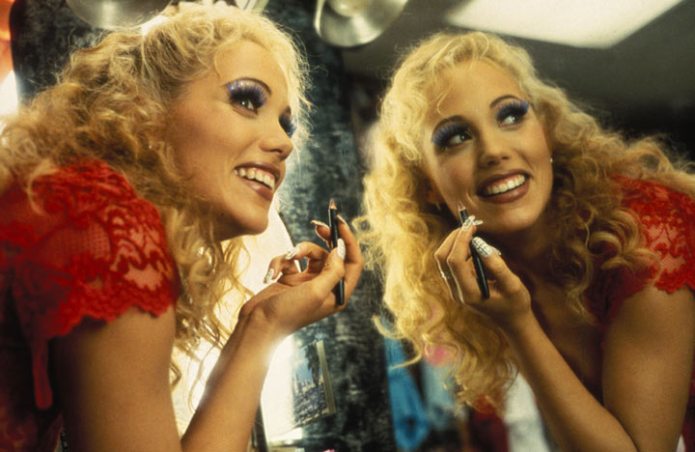
On the complete opposite end of the spectrum of Elle’s quiet, subdued tone there’s, of course, “Showgirls,” to this day still, by far, Verhoeven’s most widely despised, mocked and derided film – and also easily the most misunderstood masterpiece of his career.
In the decades since it’s disastrous reception there has been some effort to reclaim the film as an ironic camp classic; one of those “so bad it’s good” type of things that becomes interesting because of how stunningly un-self-aware it is of it’s own ridiculousness. And, all due to respect to people who think this way, since they mostly act in good faith, but the truth is they’re the ones who are missing the point entirely, because one thing is completely beyond doubt: Verhoeven is always in on the joke.
In fact, here’s an illuminating story: after the commercial failure of “Flesh + Blood,” Verhoeven moved to the United States in order to study the country’s culture and understand what kind of movies American audiences liked. As a result, with his next batch of films he created both fine Hollywood entertainment and some of the most vicious eviscerations of America ever made, taking the rotten core of the country’s culture and spitting it back at them free from any illusions of respectability.
“Showgirls” is the pinnacle of that philosophy – while not necessarily Verhoeven’s best overall, it’s the most succinct and savage summation of his worldview and of some of his career long thesis; such as the intersection of misogyny and capital, an apparatus of American greed built on base desires. Brilliant stuff.
3. Total Recall (1990)
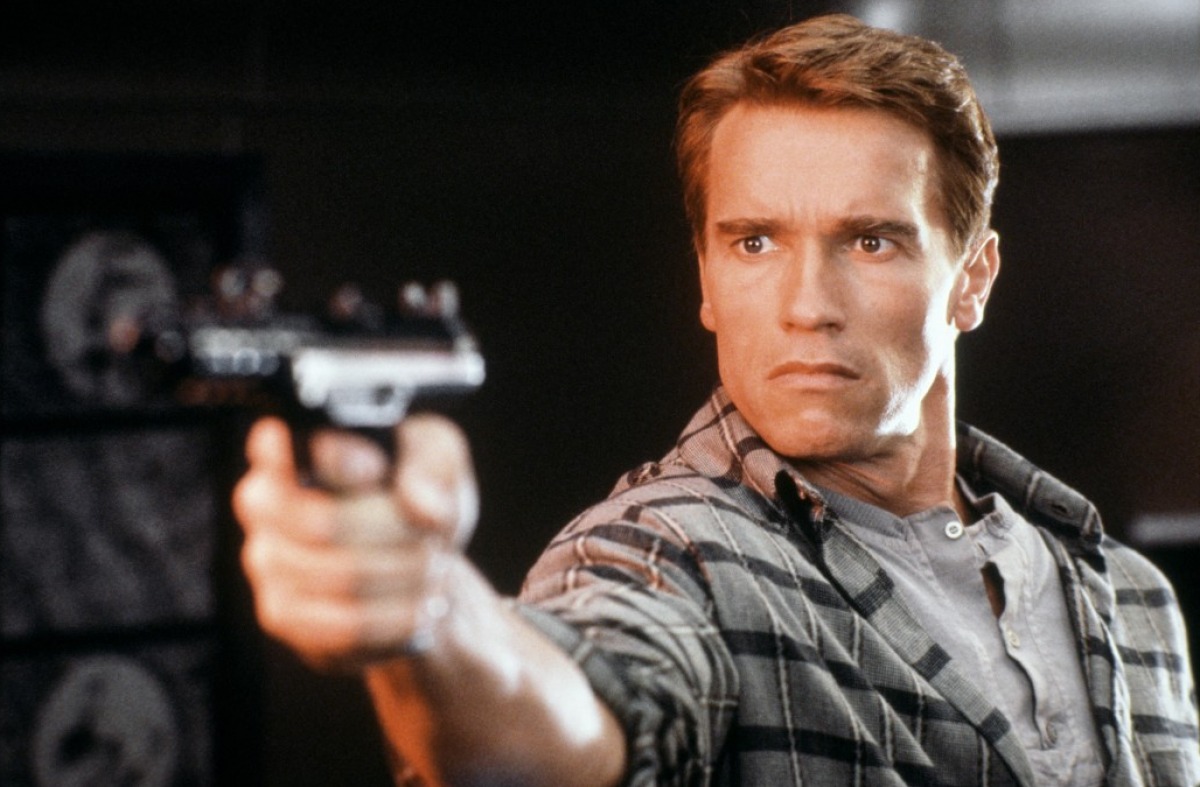
Among the many reasons why Verhoeven was (and remains) an essential filmmaker; his revolutionary use of practical effects must be mentioned as one of the main ones – he’s truly one of the great mavericks of analog spectacle and, sadly, also one of the last.
“Total Recall” is the pinnacle of his powers as a master of special effects and practical filmmaking – a relentlessly jaw-dropping display of cutting edge prosthetics, miniatures and animatronics; not to mention the absolutely brilliant production design. Even after so many years, the achievement of special effects wizard Rob Bottin and his team continues to be astonishing – one of the most sophisticatedly crafted, tactile works of spectacle ever created.
Like all of Verhoeven’s best films, however, “Total Recall” is more than just an action extravaganza; it’s also an incredibly sharp and bitting political satire – one whose humorous exacerbation of capitalist greed (with a villain seeking to privatize the air) only becomes more eerily plausible with each passing year.
2. Starship Troopers (1997)
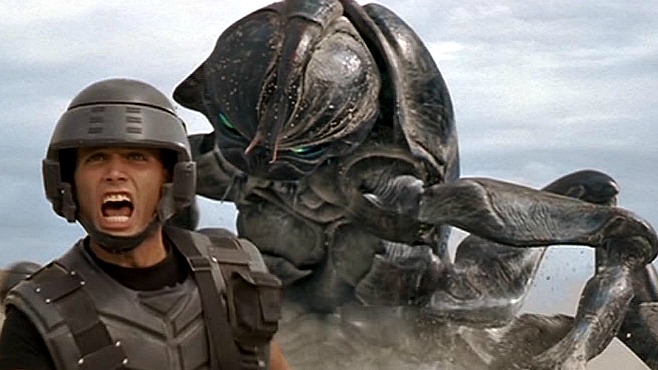
Of all the times Verhoeven’s work was completely misunderstood by mainstream critics (and it happened a lot) none was more egregious than “Starship Troopers” – in fact, has there ever been any movie which got so thoroughly misconstrued upon release?
Unlike “Showgirls,” however, “Starship Troopers” has been properly reevaluated; coming to achieve the classic status and respect it should’ve gotten from the beginning – even critics who originally dismissed it as cheap schlock or denounced it as a fascist film have come to realize the shallowness of their view. And while it’s good that the movie’s reputation has been restored, it’s still tremendously difficult to understand what people were originally thinking – Verhoeven couldn’t possibly have been any clearer in his intentions.
“Starship Troopers” is one of the most conceptually genius blockbusters ever made – taking the inherently fascistic imagery of American war movies and action cinema in general (with it’s emphasis on the heroic nature of the military; the visceral thrill of violence and plastic beauty of bloody battles) and expanding it into full-blown propaganda of a fascist society, even taking visual cues from Leni Riefenstahl.
The result is one of the most layered, thoughtful examinations not just of the allure of fascist aesthetics but also on the nature of media and propaganda itself – Verhoeven masterfully understands how easily de-humanisation of an entire group can be sold and, even more scary, how an entire society is eager to buy into it.
1. Robocop (1987)
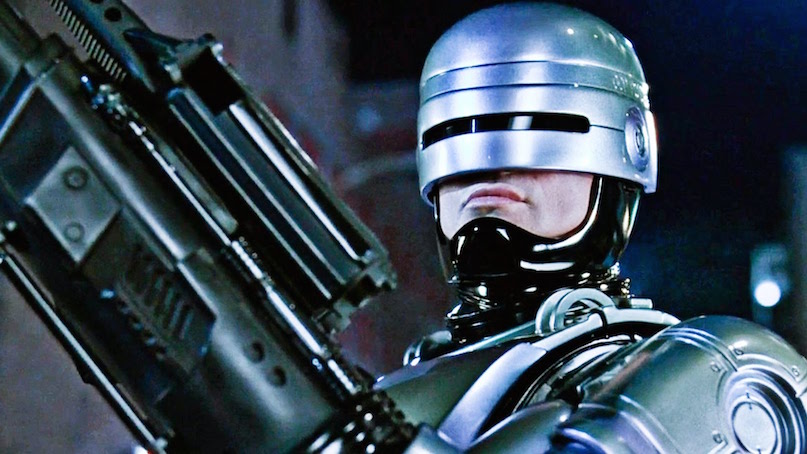
What else could it be? Most die-hard Verhoeven fans would probably choose another one of his masterpieces as his definitive magnum opus – “Showgirls” and “Starship Troopers,” controversial as they may be, have many champions among the director’s acolytes, as does some of his earlier Dutch classics.
That being said, there’s only one picture Verhoeven ever made that is an absolute unanimity across the board, beloved and revered by audiences, mainstreams critics, and fans of the director’s particular brand of ultra-violent satire: “Robocop.” It’s the film in which Verhoeven most consistently mastered the balance between creating a straightforward action flick and a cutting political satire.
“Robocop” is both a pure, pulpy piece of sleazy spectacle, featuring machine-gun wielding giant robots; rapists getting shot in the genitals and bad guys being literally melted into goo; and one of the most intelligent, prescient examinations of corporate privatization of public services; gentrification through violence and Reagan era capitalist excess. A miracle, one of a kind thingthat’s unlikely to ever be replicated.